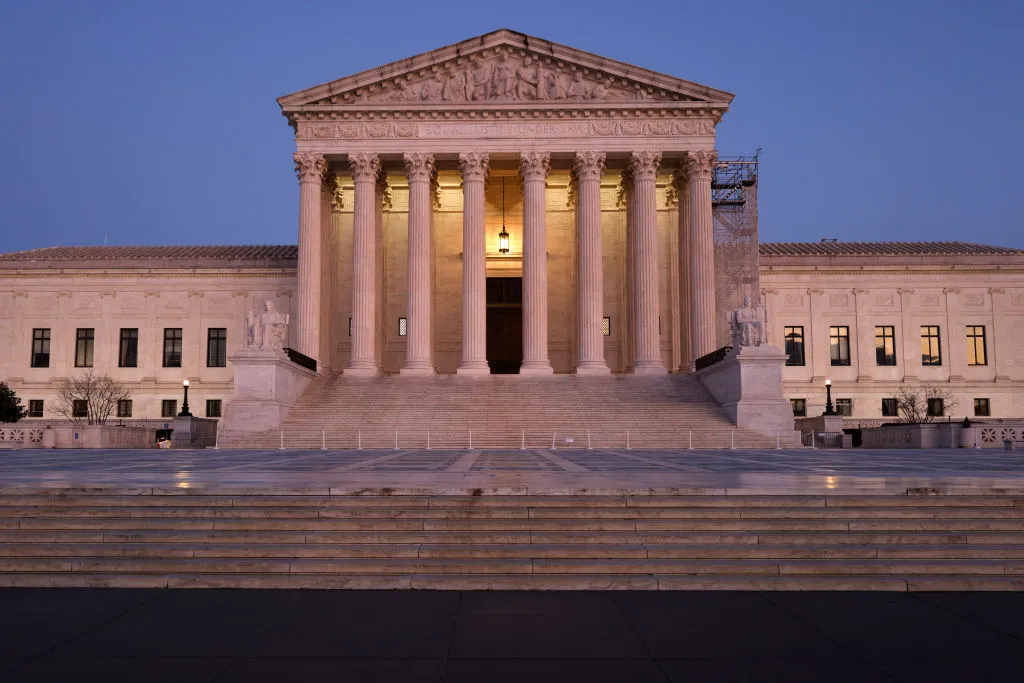Supreme Court leaves order in place allowing transgender student to use boys’ bathroom


The Supreme Court on Wednesday left in place a ruling by a federal appeals court that requires a South Carolina school district to allow a transgender student to use the boys’ bathroom while the teen’s challenge to a state law that requires students to use the bathrooms that correspond to their biological sex “at the time of birth” continues.
In a brief, unsigned order, the court emphasized that in denying South Carolina’s request to pause the ruling by the U.S. Court of Appeals for the 4th Circuit, it was not weighing in on the underlying merits of the challenge filed by the teen, known only as John Doe. Instead, the court wrote, “it is based on the standards applicable for obtaining emergency relief from this Court” – such as whether the state would be permanently harmed if the lower court’s ruling were not put on hold.
Justices Clarence Thomas, Samuel Alito, and Neil Gorsuch indicated that they would have granted the state’s request, which would have allowed it to implement the law while the litigation continues.
The dispute began after the state enacted the law in its 2024-25 budget appropriations bill and then again in its 2025-26 bill. Doe’s parents pulled the teen out of school during the 2024-25 school year after Doe was suspended for a day for using the boys’ bathroom; school officials indicated that Doe could face expulsion by continuing to do so. But the family opted to have Doe return to in-person school for the 2025-26 school year, which began in mid-August.
Doe went to federal court in South Carolina, contending that the state law violates both the Constitution’s equal protection clause, which generally requires the government to treat similarly situated people the same, as well as federal civil rights laws barring gender discrimination in educational programs that receive federal funding.
On July 3, the Supreme Court announced that it would review the 4th Circuit’s decision in West Virginia v. B.P.J., in which the court of appeals struck down a state law prohibiting transgender girls from participating on girls’ sports teams because it discriminated “on the basis of sex.”
The district court put Doe’s case on hold in light of that announcement, but the 4th Circuit granted Doe’s request to allow the case to continue. The court of appeals relied on its 2020 decision in Grimm v. Gloucester County School Board, holding that a Virginia school district’s refusal to allow a transgender boy to use the boys’ bathroom violated federal law and the Constitution.
South Carolina came to the Supreme Court on Aug. 26, asking the justices to pause the court of appeals’ ruling. The state argued that the 4th Circuit’s decision in Grimm was a “discredited outlier” that “should (and may soon) be overturned” – particularly in light of the Supreme Court’s recent decision in United States v. Skrmetti, which upheld Tennessee’s ban on certain forms of medical treatment for transgender youths.
Lawyers for John Doe countered that the 4th Circuit’s order was a narrow one that “only applies to John.” South Carolina can enforce the law against other transgender students in other schools, they noted, while the litigation moves forward – “hardly an emergency warranting a stay from this Court,” they contended. Moreover, they added, South Carolina had been “unable to identify a single concrete injury it would suffer” if the 4th Circuit’s order were left in place for now.
In a statement issued on Wednesday afternoon, Alexandra Brodsky of Public Justice, who represents Doe, said that the court’s order “reaffirms what we all know to be true: Contrary to South Carolina’s insistence, trans students are not emergencies. They are not threats. They are young people looking to learn and grow at school, despite the state-mandated hostility they too often face. We are so thrilled that our client will continue to be able to use boys’ restrooms while his appeal continues, and hope today’s decision will provide hope to other trans students and their families during these difficult times.”
Posted in Court News, Emergency appeals and applications
Cases: South Carolina v. Doe